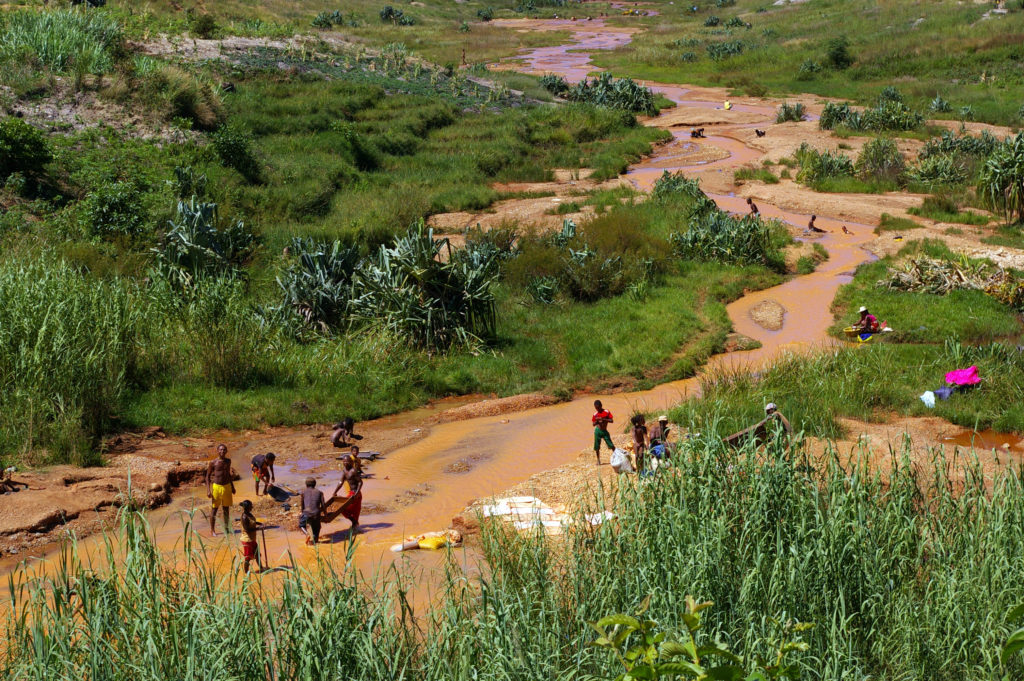
Hundreds of people marched through Ghana’s capital Accra on Friday in a peaceful protest against unlicensed gold mining, calling on authorities to act against the dangerous and environmentally damaging practice.
Illegal small-scale gold mining known “galamsey” in Ghana has picked up this year following an almost 30% rise in global gold prices.
Small-scale mines produced 1.2 million ounces of gold in the first seven months of this year, more than in the whole of 2023, according to data from Ghana’s mining sector regulator.
But the boom in a practice that harms miners’ health, pollutes waterways, destroys forests and cocoa farms, and fuels crime has spurred calls and protests to clamp down. It has also become a hot button electoral issue as Ghana heads to the polls on Dec. 7 for a general election.
Hundreds took part in an “environmental prayer walk” against galamsey on Friday that involved handing a petition for a ban on informal mining to the president’s office.
The march followed plans by labour unions for a nationwide strike against galamsey this week that were partially called off after the government made promising provisions, according to local media reports citing the organizers.
The government is under pressure to appeal to voters that will elect the next president of the West African gold- and cocoa-producing nation.
Outgoing President Nana Akufo-Addo has grappled with the country’s worst economic crisis in a generation and a massive debt overhaul that has heavily impacted people’s livelihoods.
About 40% of Ghana’s total gold output comes from small-scale mines, as opposed to concessions operated by multi-national firms. Some 70%-80% of the small mines are unlicensed.
(By Francis Kokoroko and Sofia Christensen; Editing by Bill Berkrot)
Read More: Ghana’s wildcat gold mining booms, poisoning people and nature
2 Comments
K.Makaza
Artisinal mining is crucial in Africa. Gvts should harness this huge opportunistic employment creator. Sadly, African countries don’t provide necessary skills for Artisinal miners hence they learn as they work in the fields. African Gvts should build on this and allow domestic investment in mining sector (especially gold) to grow.
Miroslav Kalinaj
It is good to see environmental responsibility is waking up also in African countries against pollution and illegal mining-related crime. Every time the gold price climbs, it triggers more and more people getting into illegal mining in third-world countries. It is starting to be a significant problem for formal mining companies as well as for countries’ governments, which are losing a war against illegal mining and related organized crime. This problem will get bigger and bigger, and sooner or later, worldwide legislation will be required to stop illegal mining, as was done in the case of blood diamonds. This “mercury-gold” banning legislation, and its strict fulfillment, is a must; otherwise, illegal miners will poison rivers and finally see oceans with a brutal amount of mercury used every year in this activity e.g northern Peru where all Amazon basin river fish is already contaminated with a huge amount of mercury, same in Ecuador and Brazil. Also, a mercy worldwide ban is something even the UN should start to consider if that useless organization is good for something.